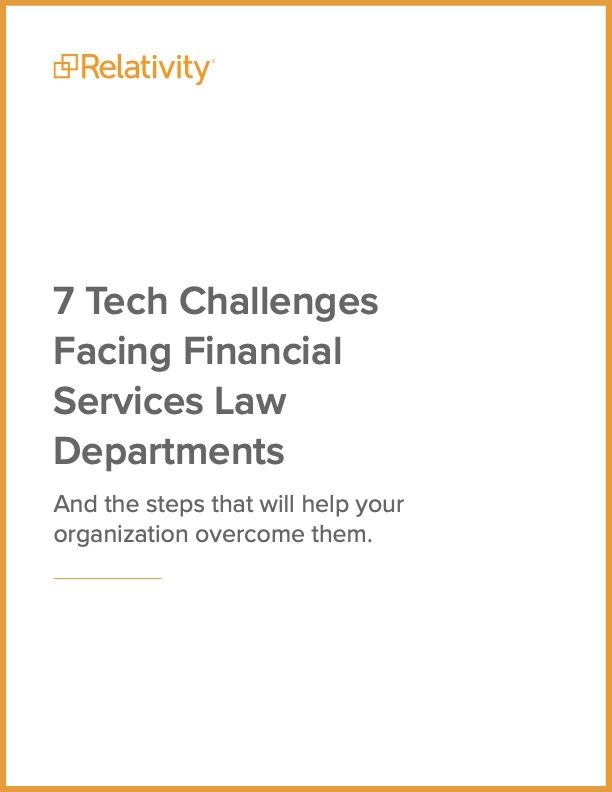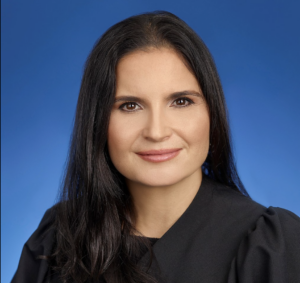Healthcare
costs
are
expected
to
rise
8%
in
2025, the
most
significant
projected
increase
in
over
a
decade.
These
staggering
costs
affect
all
of
us
–
from
providers
to
payers,
life
sciences
companies
to
government
agencies,
and
most
certainly
affect
us
as
patients.
This
cost
trajectory
is
not
sustainable.
Having
spent
more
than
30
years
in
the
healthcare
IT
industry,
I’ve
seen
how
technology
often
plays
a
critical
role
in
strategies
to
combat
rising
costs
while
maintaining
quality
care.
I
expect
to
see
these
four
trends
accelerate
in
2025.
1.
Data
sophistication
is
not
optional.
Insurance
companies
and
self-insured
employers
continue
to
see
significant
increases
in
benefits
costs.
In one
estimate, costs
of
employer-sponsored
healthcare
coverage
are
expected
to
rise
by
9%.
Healthcare
data
curation
and
aggregation,
plus
linking
closed
claims
with
clinical
data,
will
become
one
of
the
most
effective
ways
for
organizations
to
improve
treatment
options
and
tackle
affordability.
However,
this
is
complex
work.
Let’s
put
this
challenge
in
context
using
a
current
issue:
managing
GLP-1s.
A recent
survey found
1
in
8
adults
have
reported
taking
this
increasingly
popular
class
of
drugs.
In
talking
with
our
clients,
we’ve
found
that
about
two
out
of
three
payers
cover
GLP-1s
for
weight
loss.
They
report
they
use
different
approaches
to
manage
these
drugs
for
patients
with
diabetes
and
those
who
are
using
them
to
address
obesity.
For
example,
pharmacy
benefit
manager
step
therapy
and
quantity
limits
often
oversee
usage
for
patients
with
diabetes,
while
other
patients
participate
in
weight
loss
management
programs.
The
increasing
savvy
of
healthcare
consumers
further
challenges
employers
and
insurance
companies.
As
financial
burdens
increase,
people
expect
more
from
their
benefits
in
terms
of
transparency
and
access
to
services,
especially
mental
health
and
wellness
offerings.
Payers
need
sophisticated
analytics
to
understand
how
their
strategies
play
out
among
their
members,
how
they
impact
utilization
rates,
and
which
approach
is
leading
to
better
outcomes.
And
we
hear
from
our
clients
that
the
last
piece
–
understanding
the
path
to
better
outcomes
–
is
a
complex,
difficult
task.
A
deep
understanding
of
these
trends
enables
payers
to
achieve
their
goals.
The
same
is
true
in
the
life
sciences
world.
For
decades,
researchers
have
used
large
health
data
sets,
always
making
the
best
of
what
they
had
access
to.
Today,
however,
it’s
a
different
story.
Researchers
have
more
data
choices
than
ever
before,
and
that
requires
a
new
level
of
sophistication
and
data
expertise.
To
gain
insights
from
today’s
real-world
data,
researchers
need
a
foundation
of
comprehensive,
diverse,
trusted
information
built
on
linkages
between
data
sets.
2.
Use
cases
will
drive
the
adoption
of
Artificial
Intelligence
(AI).
Reality
checks
have
tempered
the
euphoria
about
AI’s
ability
to
solve
every
challenge
over
the
last
few
decades.
While
the
promise
of
AI
is
clear
and
strong,
healthcare
is
taking
a
more
pragmatic
approach
these
days.
AI
isn’t
the
first
technology
that
has
fallen
short
of
being
the
immediate
panacea
for
all
healthcare
problems.
Blockchain
is
another
example
that
comes
to
mind.
Full
economic
value
from
AI
will
take
five
to
ten
years
to
be
realized.
In
comparison,
mobile
phones
and
internet
technology
took
20
years
to
reach
their
full
potential.
We
can
learn
from
these
past
experiences
and
instead
put
emerging
technologies
to
work
in
targeted
ways.
We
will
see
many
use
cases
centered
around
operational
efficiency
and
workplace
AI
integration.
AI
will
automate
administrative
tasks
such
as
scheduling,
resource
allocation,
and
supply
chain
management.
This
automation
reduces
overhead
and
enables
healthcare
professionals
to
dedicate
more
time
to
patient
care.
Using
AI
to
alleviate
administrative
tasks
can
also
help
reduce
clinician
burnout.
For
example,
specific
use
cases
in
neurology
and
stroke
care
are
gaining
traction
in
imaging
when
AI
can
help
clinicians
prioritize
patients
in
the
most
urgent
need
of
care.
AI
algorithms
assist
radiologists
by
detecting
abnormalities
in
X-rays,
CT
scans,
and
MRIs
with
heightened
accuracy.
AI
can
also
sift
through
extensive
data
sets
to
serve
up
trusted
information
at
the
point
of
care,
such
as
a
clinician
who
needs
quick
and
accurate
dosing
information
for
a
neonatal
infant.
Beyond
its
search
capabilities,
AI
can
also
reduce
other
manual
tasks.
For
example,
in
government
benefit
and
service
delivery,
agencies
can
use
AI
to
analyze
and
verify
documents
uploaded
by
citizen
users.
This
can
make
processes
much
more
efficient
and
enable
caseworkers
to
spend
more
time
on
complex
tasks.
In
the
life
sciences
industry,
there
are
numerous
use
cases
where
AI-assistants
will
streamline
working
methods
and
drive
improved
outcomes
with
ROI
for
clinical
trials.
For
example,
research
teams
must
translate
participant
data
into
medical
codes.
AI-assisted
data
entry
has
made
this
process
less
manual.
It
uses
predictive
suggestions
and
up-to-date
coding
dictionaries
for
consistent,
accurate
entries.
These
solutions
must
become
ingrained
in
the
technologies
to
ensure
scalability
and
drive
down
the
overall
time
and
cost
of
bringing
new
treatments
and
solutions
to
patients.
In
the
future,
predictive
analytics
powered
by
Generative
AI
will
enable
early
interventions
and
preventative
care.
By
modeling
patient
outcomes
based
on
genetic
predispositions
and
medical
history,
AI
supports
proactive
health
management
and
improved
long-term
care.
AI
also
enables
personalized
medicine
as
clinicians
analyze
genetic,
clinical,
and
lifestyle
data
to
develop
customized
treatment
plans.
This
shift
towards
precision
and
patient-centric
care
improves
health
outcomes
and
minimizes
side
effects.
AI
hype
will
soon
be
replaced
by
use
cases
for
specific
AI
investments.
It
will
require
a
clear
return
on
investment
before
organizations
add
investment
and
operating
expenses
to
their
budgets.
3.
Expect
and
adapt
to
new
rules
in
the
United
States.
The
Trump
administration
has
signaled
that
it
plans
to
change
existing
federal
agencies
and
programs
to
lower
costs.
The
president-elect
has
named
several
people
to
lead
key
federal
health
agencies,
such
as
the
FDA,
NIH,
and
CDC,
which some
industry
observers have
called
“out-of-the-box
choices”
and
a
“colorful
cast”
that
could
make
significant
changes.
While
many
incoming
officials
have
been
vocal
about
reducing
costs,
the
details
are
still
being
developed.
Changes
in
the
United
States
may
also
be
a
catalyst
for
additional
changes
from
other
global
regulatory
bodies.
For
example,
the
European
Union
(EU)
is
much
more
stringent
on
data
privacy
than
the
U.S.
If
the
U.S.
further
reduces
data
privacy
requirements
for
companies,
EU
regulators
could
require
global
companies
to
relocate
servers.
As
with
any
change
in
administration,
government
agencies
responsible
for
benefits
delivery
must
be
ready
to
adjust.
Federal,
state,
and
local
agencies
must
also
be
ready
to
communicate
with
citizens
about
how
these
changes
impact
eligibility
and
benefits.
Technology
must
be
capable
of
adapting
to
changes
in
legislation,
policy,
and
population
needs.
4.
Cybersecurity
is
more
critical
than
ever
in
healthcare.
According
to
the World
Economic
Forum,
healthcare
is
the
most
targeted
industry
for
cyberattacks.
In
2023,
healthcare
data
breaches
cost
an
average
of
about
$11
million
each,
almost
double
the
cost
of
a
breach
in
the
financial
industry,
which
came
in
second.
Recent
high-profile
cyberattacks
will
impact
healthcare
organizations
for
years
to
come.
To
mitigate
future
risk,
there
is
proposed
legislation
in
the
U.S.: The
Health
Infrastructure
Security
and
Accountability
Act
of
2024. The
bill
imposes
additional
security
controls
and
measures,
new
fines,
and
penalties
for
companies
who
fail
to
comply
and
protect
health
information.
Security
concerns
are
both
a
driver
and
barrier
to
healthcare
providers
moving
systems
and
data
to
the
cloud.
Given
healthcare
data’s
increasing
complexity
and
volume,
cloud
computing
can
offer
scalability,
better
security,
and
more
efficient
data
management.
However,
securing
these
systems
is
paramount,
especially
with
sensitive
patient
information.
Many
healthcare
organizations
increasingly
adopt
hybrid
cloud
models
for
better
data
management,
interoperability,
and
cost-efficiency.
Cloud
technology
can
facilitate
seamless
integration
between
healthcare
providers,
payers,
and
life
sciences
companies
while
maintaining
security.
Cloud
infrastructure
can
also
accelerate
the
adoption
of
AI
and
big
data
analytics
by
providing
more
accessible
and
secure
environments.
Data
sophistication,
targeted
AI,
adapting
to
new
rules,
and
cybersecurity;
healthcare
organizations
that
effectively
pursue
these
aims
will
be
better
positioned
to
reduce
costs
while
maintaining
high-quality
care.
Source:
metamorworks,
Getty
Images
Gerry
McCarthy
is
Chief
Executive
Officer
for
Merative,
a
data,
analytics,
and
software
partner
for
the
global
health
industry.
McCarthy
has
been
in
health
information
technology
for
30
years,
most
recently
serving
as
CEO
of
eSolutions,
a
revenue
cycle
management
solution
that
exited
to
Waystar
in
October
2020.
Before
eSolutions,
he
was
the
President
of
Transunion
Healthcare
and
held
several
executive
leadership
roles
at
McKesson.
This
post
appears
through
the MedCity
Influencers
program.
Anyone
can
publish
their
perspective
on
business
and
innovation
in
healthcare
on
MedCity
News
through
MedCity
Influencers. Click
here
to
find
out
how.

 Joe
Joe


 Chris
Chris












